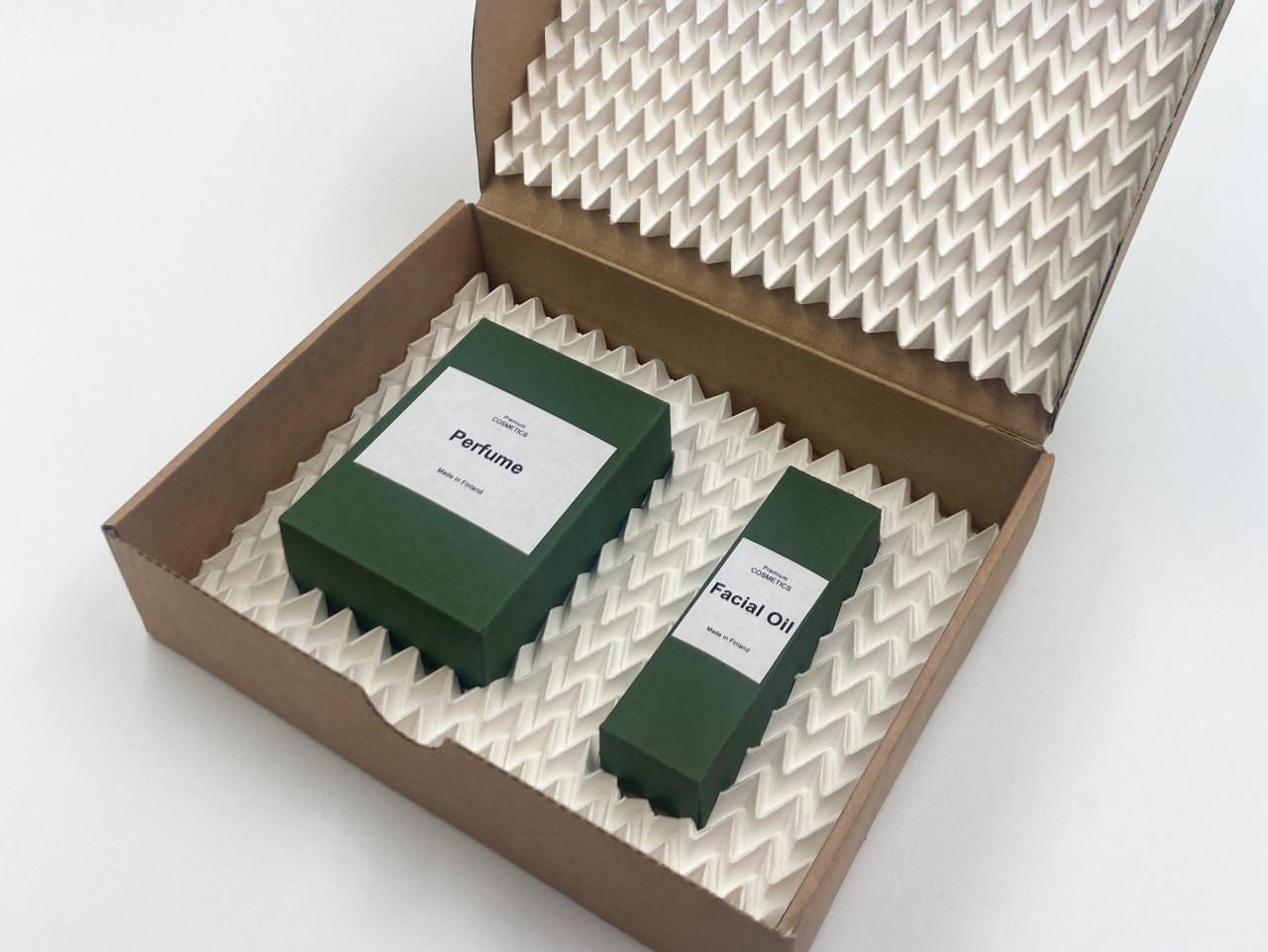
As much as I love the fidget-aspect of bubble-wrap, there’s this overwhelming sense of guilt every time I pop an individual bubble, knowing that I’m slowly making the wrap useless. In fact, only a small percentage of bubble-wrap actually gets reused, which means the world’s left with a lot of plastic film (which can’t get recycled) just lying out there, waiting to either be popped or turned into waste. The solution, however, is a bubble-wrap WITHOUT bubbles. Made from folded paper, this origami-inspired bubble-wrap alternative offers a classier, more sustainable approach relying on gorgeously geometric pleated paper.
The brilliance of this idea lies in its roots: the Miura fold. Think of it as the origami equivalent of a Swiss Army knife—sleek, efficient, and endlessly versatile. By applying this precise folding pattern to traditional cardboard, researchers have found a way to create lightweight, strong, and flexible three-dimensional structures. It’s the kind of innovation that feels both wildly creative and beautifully logical. Cardboard, the unsung hero of shipping and storage, gets a striking upgrade without altering its core material.
Designers: VTT Technical Research Centre of Finland & Aalto University
The Miura’s design allows for enhanced durability and flexibility, all while maintaining a lightweight profile. Picture food containers, electronics packaging, or even luxury goods boxes that are sturdy enough to do their job but also light enough to reduce shipping emissions. That’s the beauty of it—better function with less environmental impact. The material itself is still familiar paperboard, meaning the shift doesn’t require a seismic change in production methods. Plus you don’t need virgin paper either, opening up doors for using recycled paper.
The material relies on fibers, often recycled, making it a serious contender against plastics and foams. And while we’re on the topic of alternatives, the team behind this isn’t stopping at cardboard. They’re experimenting with folding other materials, like aluminum foil and felt, hinting at a future where this technology might influence everything from packaging to interior design.
The project, aptly named FOLD and its successor FOLD2, has brought together 13 organizations to push this concept forward. The first phase laid the groundwork for refining the technology, while FOLD2 is taking things up a notch, exploring compatibility with a broader range of materials, and readying it for large-scale commercial use. Early tests show that the folding process works on materials as diverse as aluminum foil, plastic films, and felt, hinting at future applications far beyond packaging.
And that’s the exciting part—it doesn’t stop at boxes or cartons. The technology’s flexibility has caught the eye of designers in other fields. Decorative interior panels? Check. Functional architectural elements? Why not? There’s even potential for food packaging that’s as sustainable as it is innovative. When something this versatile comes along, it’s not hard to imagine the ripple effects across industries, from consumer goods to luxury interiors.
This kind of multidisciplinary magic doesn’t happen in a vacuum. It’s the result of engineers, materials scientists, and designers collaborating to solve real-world problems with solutions that are both creative and practical. The Miura fold, chosen for its efficiency, is just one example of how ancient techniques can meet modern needs. It’s geometry brought to life—not in textbooks, but in products that we’ll encounter in stores, homes, and maybe even our kitchens.
Looking ahead, the next three to five years will determine how this technology scales. Industry giants like Walki Group and Stora Enso are already testing the waters, exploring how these folded materials might replace less sustainable options. But this isn’t just about the companies; it’s about all of us as consumers. With demand for greener options growing louder, innovations like origami-inspired packaging might just become the new normal.
For now, the folding revolution is still taking shape, but if this is the future of packaging, we’re ready to unbox it. Literally.